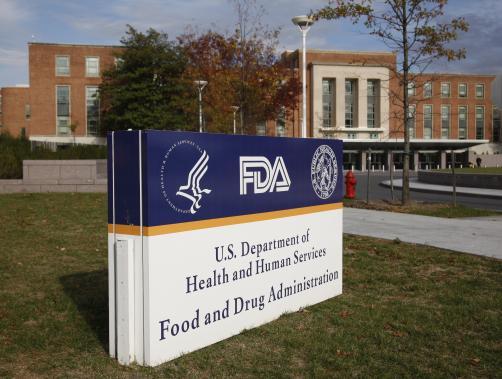Dilemma for Biden as Woodcock’s audition for FDA chief stumbles

The change of administration in the US has also seen a new leader at the FDA, with Dr Janet Woodcock appointed as interim commissioner by president Joe Biden’s new team. But there are doubts about her suitability for the permanent job because of her handling of the opioid crisis, says Richard Staines.
Dr Janet Woodcock would at first seem like a safe pair of hands as the new chief of the FDA, an insider who has been part of the organisation since the eighties.
She is already in charge temporarily after Trump appointee Stephen Hahn stepped down, as is the custom following a change of leadership at the White House.
But Woodcock has barely been in post for three weeks and there is already strong opposition against her taking the role on a permanent basis.
There is a fierce lobbying campaign against her appointment because of the stances she took during the ongoing debate about availability of opioid painkillers in the US.
In a letter to the Biden administration 28 groups accused Woodcock of presiding over “one of the worst regulatory agency failures in US history”, because of the number of opioid drugs allowed on the market while Woodcock was involved with the Center for Drug Evaluation and Research (CDER).
[caption id="attachment_31285" align="alignleft" width="201"] Dr Janet Woodcock[/caption]
Dr Janet Woodcock[/caption]
Woodcock began working for CDER in 1994, the year before the controversial opioid Oxycontin (oxycodone) from Purdue Pharma was approved.
The FDA did go on to add warning labels in the following years and eventually decided to require a class-wide monitoring programme, with training for doctors.
But that was in 2012 and although the FDA has taken several steps to tighten regulation on opioids, they remain on the market with addiction still a major problem in the US.
The most embarrassing episode for the FDA came in 2017 when it requested that Endo Pharmaceuticals remove the opioid painkiller Opana ER - an extended release formulation of oxymorphone hydroxychloride - from the market.
It turned out that the drug could be too easily abused and turned into an illegal injection and had been linked to serious outbreaks of HIV and hepatitis C in groups of users.
During that period the FDA also approved Zogenix’s opioid Zohydro ER (hydrocodone) even though its own expert advisers voted against it.
Dr Raeford Brown, an anaesthesiologist who chaired the FDA’s Anesthetic and Analgesic Drug Products Advisory Committee began to publicly oppose Woodcock and called for her to resign from her position as CDER chief in 2018 because of her handling of the issue.
The FDA has developed in line with the life sciences industry during Woodcock’s time and has kept pace with development of innovations such as cancer cell therapies, biosimilars and digital therapeutics.
But with the interim post seen as an audition for the permanent role, things have not got off to a good start for Woodcock.
So who else could be in the frame for the permanent position?
Abernethy the newcomer
According to insiders cited by Politico, one option being considered is principal deputy commissioner of Food and Drugs Amy Abernethy.
The FDA’s website says that Abernethy helps oversee the agency’s day-to-day functioning and directs high-priority initiatives overseeing the agency’s regulation of drugs, medical devices, tobacco and food.
Abernethy has avoided being dragged into the opioid controversy as she is a fairly recent appointment and has instead been focused on technical projects.
One high-profile project has been the use of real-world data during the approval of COVID-19 vaccines, something that she discussed in an emailed interview with pharmaphorum earlier in the pandemic.
In the email, Abernethy said that the FDA has been looking to use a system called Sentinel to develop new ways to assess the safety of approved medical products such as drugs, vaccines and medical devices.
Real-world data could also be used to develop strategies to prepare for the next public health emergency, said Abernethy, who has overseen the agency’s switch to a cloud-based data storage system.
Abernethy only joined the agency in 2019 and although she clearly has some fresh ideas about how the FDA could be run, she lacks Woodcock’s experience in the organisation.
A medical scholar and expert, Abernethy is a former president of President of the American Academy of Hospice and Palliative Medicine after training as a haematologist/oncologist at Duke University.
Immediately before she took her job at the FDA, Abernethy worked for the electronic health records firm Flatiron Health, which was bought by Roche in 2018.
Sharfstein in the running?
Another contender tipped for the permanent job is Joshua Sharfstein, vice dean for public health practice and community engagement at Johns Hopkins School of Public Health.
He’s been closely linked to the full time job since Biden was sworn in and formerly worked as principal deputy commissioner of the FDA from 2009 until 2011.
Sharfstein also has close links with Biden after serving as leader of the Obama transition team on the FDA and was touted as potential FDA commissioner at that time.
Whoever is appointed will need strong leadership and decision making in the difficult few months ahead as the US healthcare system continues to struggle against the pandemic.
Hahn had to fight off pressure from the Trump administration to approve Pfizer’s vaccine early.
While it’s not likely that Biden will use such strong-arm tactics the next commissioner must show themselves to be a strong and clear-headed leader during this time of national crisis.












